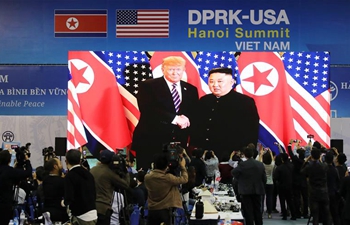UNITED NATIONS, Feb. 28 (Xinhua) -- The UN migration agency chief on Thursday called on host countries to ensure young migrants have access to education.
International Organization for Migration (IOM) Director-General Antonio Vitorino said while migration can offer young people new opportunities, their ability to exploit them depends hugely on their host communities and host governments.
Young migrants are often denied access to training opportunities, vocational as well as academic, or access to all parts of the labor market in the countries of destination, he said when addressing the International Dialogue on Migration at the UN Headquarters.
"This is particularly problematic for those, who have had their education and careers disrupted by conflict and instability, and who must then recapture years of learning within limbo and catch up to their generation of peers," he added.
What is worse, he said, many young migrants experienced discrimination in their schools or in their communities, which reduces their prospects for growth as well as their self-esteem.
"This is a dangerous cycle that we must avoid," he stressed, urging governments to welcome "those who are in their societies regularly" and ensure that they are treated equally and with dignity and full respect for their human rights.
According to the International Labor Organization, youth unemployment in North Africa is expected to exceed 30 percent in 2019 and that young people in this region are more than three times more likely to be unemployed than their adult counterparts.
For them, "it is easy to reach for migration as a solution," said Vitorino, noting the risk they would take "should not be taken at the cost of lives, our livelihoods."
He said that broader access to formal education can reduce vulnerability and increase critical thinking, which helps to reduce susceptibility to smugglers, who seek to persuade young people to take disproportionate and unreasonable risks.
According to figure from IOM, there are currently more young people in the world than ever, 1.8 billion, the largest generation in history. Of the 258 million international migrants, around 11 percent of them were below 24 years old in 2017.

















